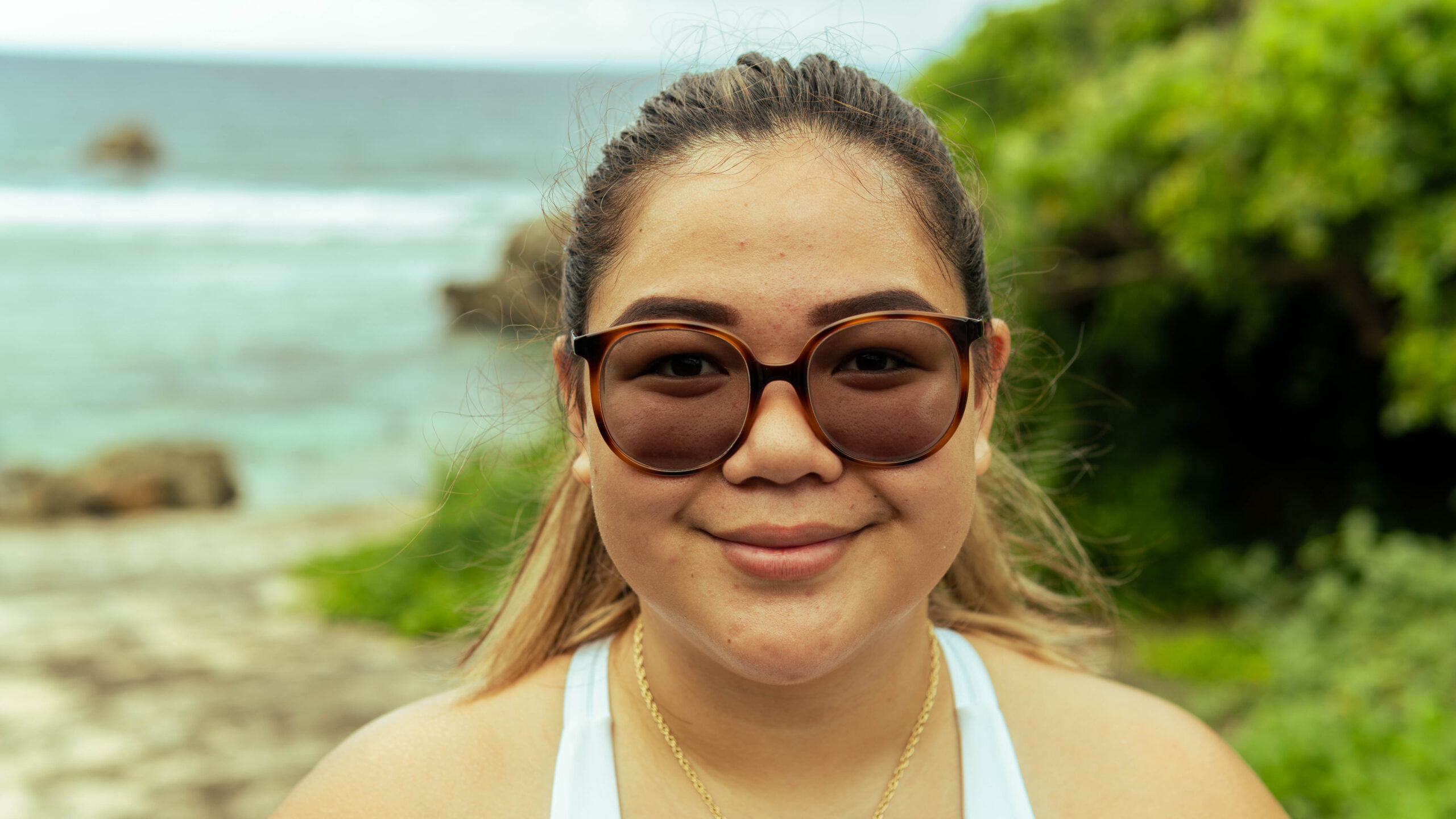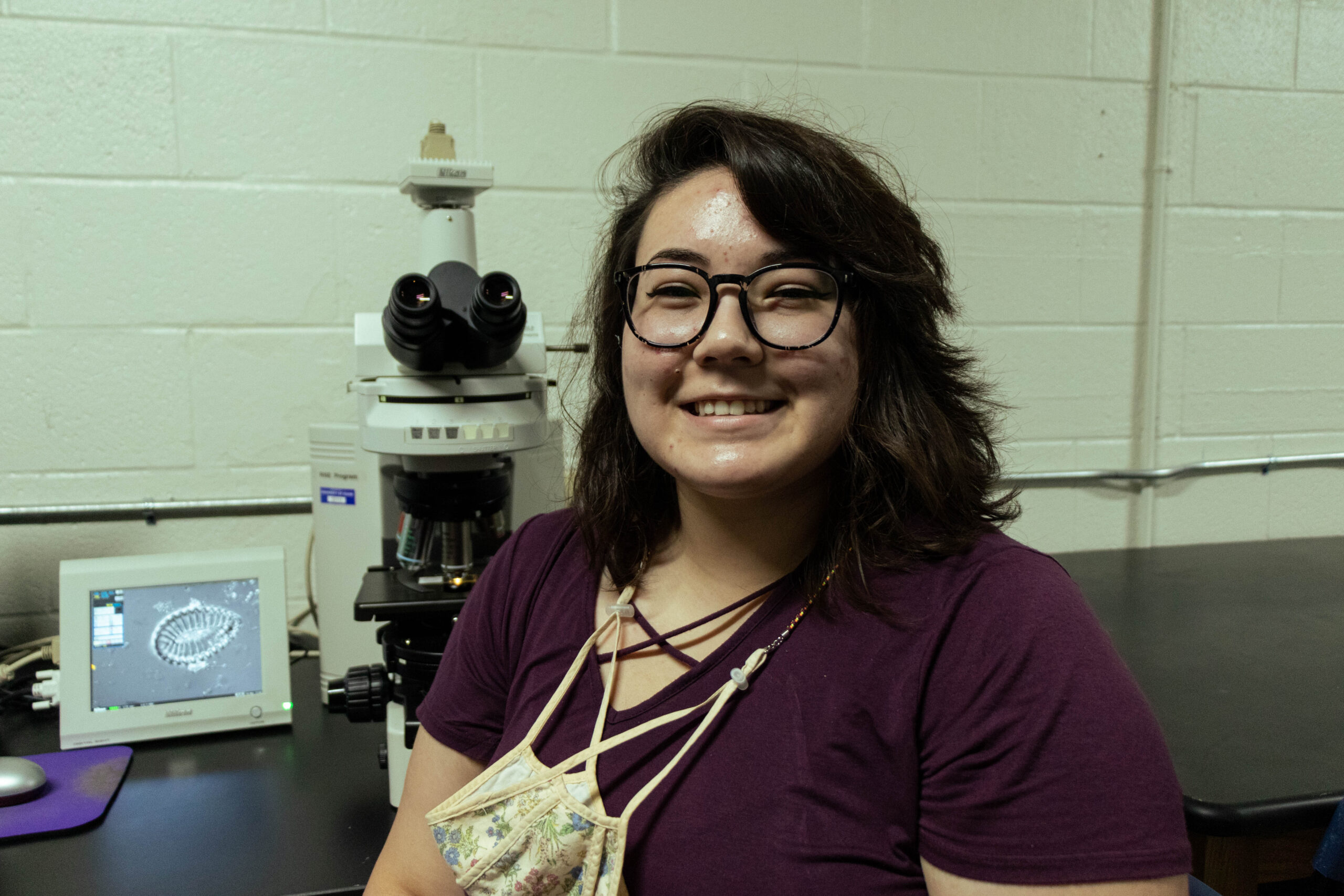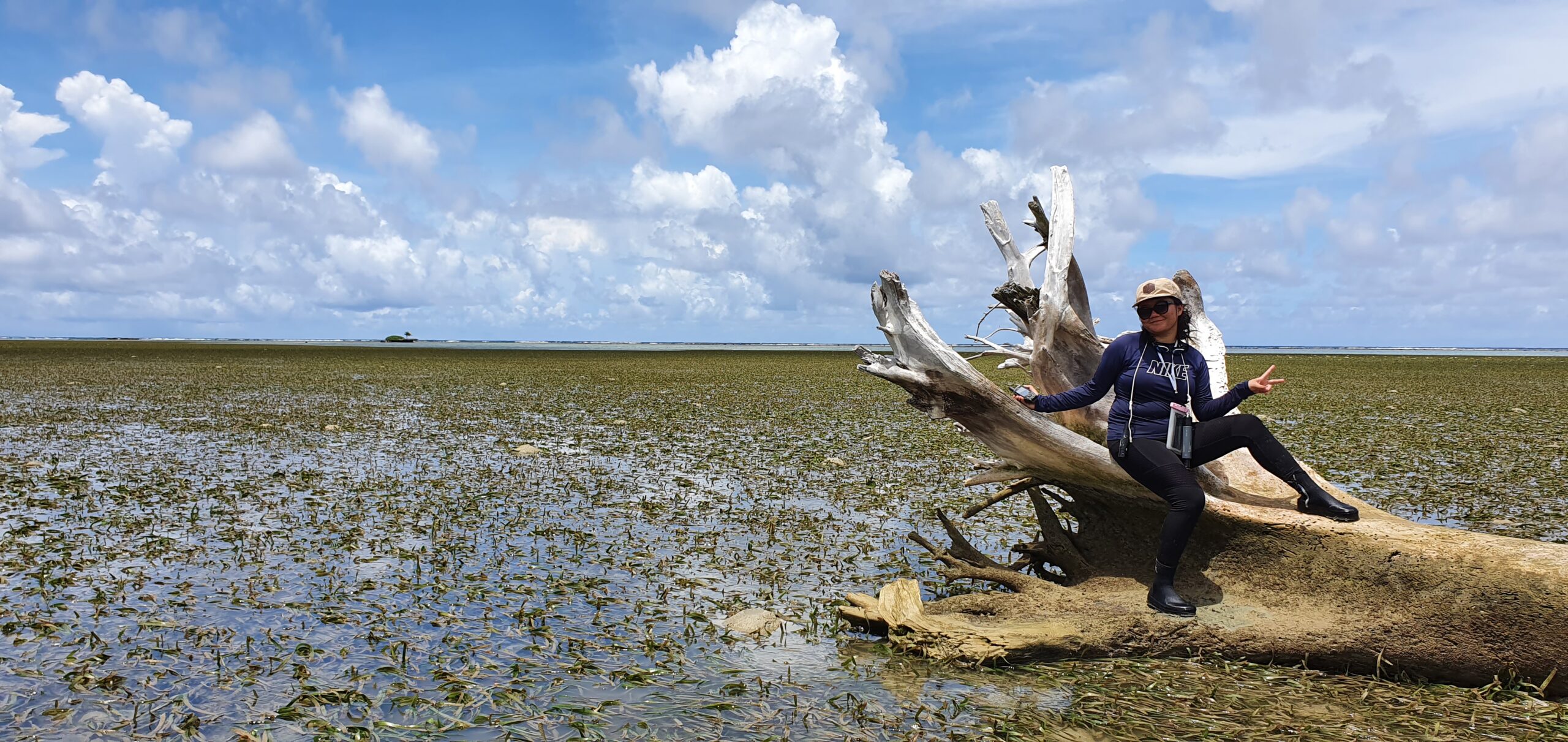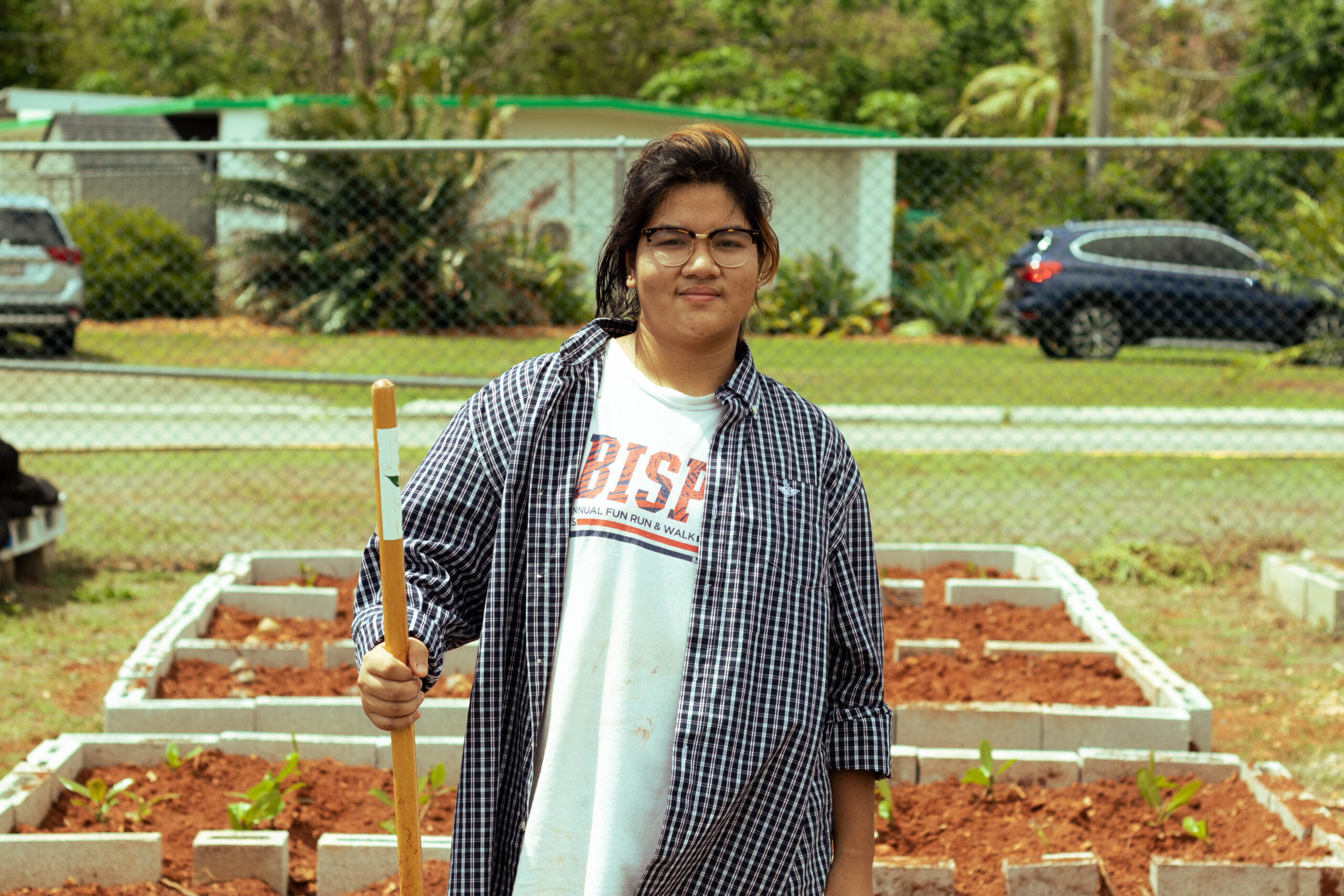




Five undergraduate students will gain valuable research experience this summer through the NSF INCLUDES: SEAS Bridge to Ph.D. Program, an eight-week research program held at Pennsylvania State University.
From June to August 2022, the students will be trained for a future as a Ph.D. student, learn about coral physiology, and gain hands-on experience in biological techniques such as DNA and RNA analysis.
For these students, it will be their first time participating in an off-island research program.
“I am looking forward to learning more about myself. This is roughly a two-month program that is planned to be in person, so this will be the longest time I will be away from home without my mom,” said Louise Pascua, a biology major and a 2022 Guam NSF EPSCoR student researcher. “It will be a very fun and interesting journey not just scientifically, but also personally.”
While at PSU, the students will practice basic oceanographic techniques aboard the UMCES flagship research vessel Rachel Carson and strengthen their science communication skills by participating in outreach activities.
Over the course of the program, the students will be placed in a Penn State research laboratory to do independent research and be mentored by the laboratory principal investigator, their students, and staff.
Hands-on experience
Pascua will focus on mosquito virus interactions and arthropod genetic manipulation under Jason Rasgon, an entomology professor at PSU.
Gabriella Prelosky, a biology student and a 2021 NSF SEAS research fellow, will study the foraging habits of honeybees and alfalfa leafcutter bees under the mentorship of Natalie Boyle, an assistant research professor at PSU.
“I genuinely look forward to working with a topic outside of my comfort zone,” said Prelosky. “I’ve been looking at different topics that don’t focus on marine biology, and I’ve been increasingly more interested in topics of ecology and now entomology, and I look forward to exploring this discipline.”
Anna Aguirre, a biology student and a 2021 NSF SEAS research fellow, will study plant pathology and environmental microbiology under Sharifa Crandall, an assistant professor at PSU.
“I’m very excited about the research I will do because the topic is one of my great interests. I think this experience will also be unlike any other because I’m attending it off-island with my friends for a whole two months,” said Aguirre.
Merry Remetira, a civil engineering student and a 2021 NSF SEAS research fellow, will study lab analyses of biomechanics of swimming jellyfish with Margaret Byron, an assistant professor of mechanical engineering at PSU.
“I feel very grateful to my mentors and peers from the EPSCoR program and my high school marine biology teacher who have made it possible to make me apply and for broadening my experiences,” said Remetira.
While at PSU, the students will have the opportunity to interact with students from other NSF SEAS jurisdictions.
“I am so honored and excited about being accepting into this great program,” said Anela Duenas, a biology major and 2021 NSF SEAS research fellow. “I am most excited to meet my peers from other SEAS hubs such as the US Virgin Islands and Puerto Rico!”
During the program, Duenas will study vegetable crop science under the mentorship of Francesco Di Gioia, an assistant professor at PSU.
About NSF INCLUDES
The NSF INCLUDES: SEAS Islands Alliance is administered by the UOG Center for Island Sustainability and Sea Grant programs in partnership with the School of Education at the University of Guam. UOG faculty members Austin Shelton, Cheryl Sangueza, and Else Demeulenaere serve as investigators of the grant award. NSF INCLUDES collaborates closely with the Guam NSF EPSCoR program, also funded by the National Science Foundation.


